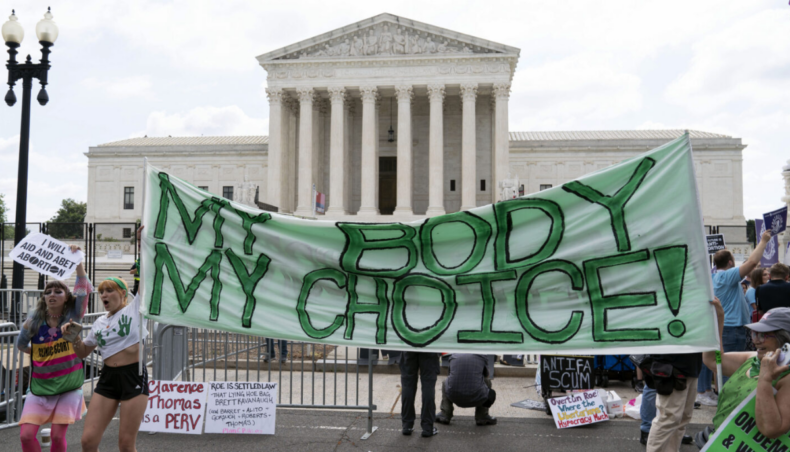The 1973 Roe v. Wade decision, which established women’s constitutional right to an abortion, was overturned by the U.S. Supreme Court on Friday.
President Joe Biden denounced the decision, saying it will significantly alter millions of women’s lives in the United States and exacerbate already-rising tensions in the bitterly divided nation.
In a 6-3 decision, the court maintained a Mississippi law supported by Republicans that forbids abortions after 15 weeks of pregnancy. The Mississippi law was maintained by a 5-4 vote, with conservative Chief Justice John Roberts writing separately to suggest he would not have gone so far as to completely invalidate the Roe precedent.
The decision’s effects will be felt well beyond the high-security walls of the court, potentially changing the electoral landscape in November and suggesting a new willingness on the part of the justices to alter other long-established rights.
The judgment will also fuel arguments over the court’s legitimacy, which was once an unquestionable pillar of the American democratic system but is now coming under fire for its more stridently conservative rulings on a variety of matters.
The decision restored states’ right to outlaw abortion. 26 states are either certain to outlaw abortion or are thought to be likely to do so. Mississippi is one of 13 states with “trigger legislation” that would outlaw abortion if Roe were overturned.
Conservative Justice Clarence Thomas encouraged the court to re-evaluate earlier rules safeguarding the right to contraception, legalizing gay marriage nationally, and rejecting state laws prohibiting gay sex in a concurring statement that sparked concerns the justices would pull back other rights.
The justices held that the Roe decision, which permitted abortions before a fetus would be viable outside the womb, which occurs between 24 and 28 weeks of pregnancy, was incorrectly decided because the U.S. Constitution does not specifically mention abortion rights. The ruling was authored by conservative Justice Samuel Alito.
Large swaths of America now present women with the option of traveling to another state where the operation is still permitted and available, purchasing abortion pills online, or undergoing a potentially risky illegal abortion.
“The constitution neither permits nor forbids abortion”
In a concurring opinion, Justice Brett Kavanaugh appeared to reject a suggestion made by some opponents of abortion that the court should go one step further and declare that abortion is against the law. According to Kavanaugh, “The Constitution neither permits nor forbids abortion.”
Kavanaugh added that the decision does not permit governments to prohibit persons from leaving their jurisdiction to get an abortion or to punish them for earlier abortions in the past.












